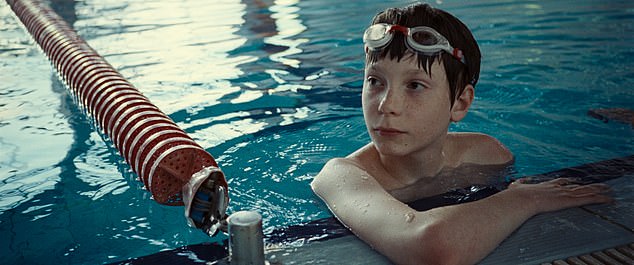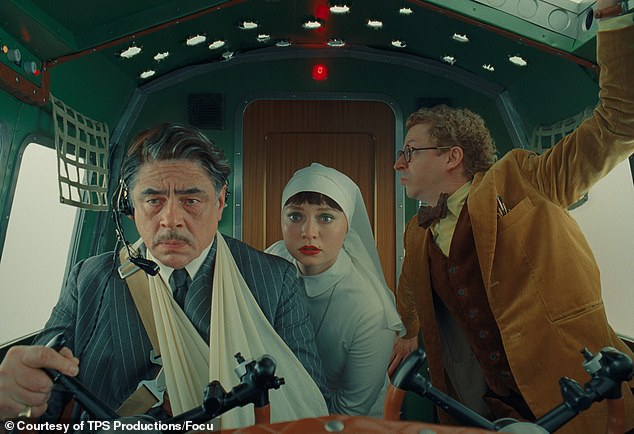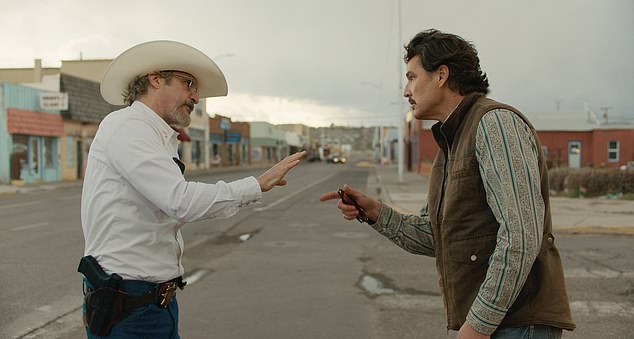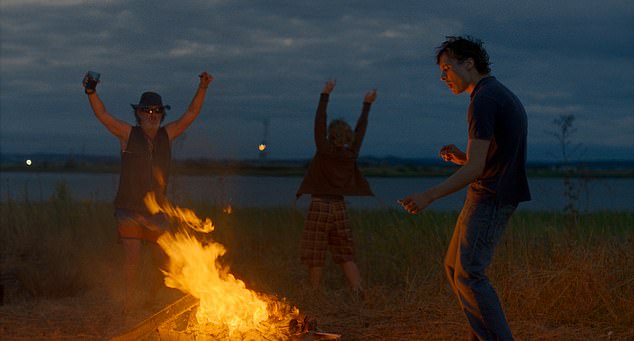The 78th edition of the Cannes Film Festival has had its usual share of happy surprises and crushing disappointments.
Of the English-language contenders for the main prize, the coveted Palme d’Or, I didn’t care at all for Wes Anderson’s The Phoenician Scheme (two stars), nor for Ari Aster’s Eddington (two stars), a satire set during the pandemic.
Eddington is a fictional small town in New Mexico, where sheriff Joe Cross (Joaquin Phoenix) and mayor Ted Garcia (Pedro Pascal) are at odds over Covid rules and Garcia’s history with Cross’s wife (Emma Stone).
The film starts off promisingly but veers out of control and becomes downright deranged.
I didn’t much like Die, My Love (two stars) either. Lynne Ramsay’s film stars Jennifer Lawrence as Grace, a young mother whose post-partum depression puts her marriage to the feckless Jackson (Robert Pattinson) under intolerable strain. But they’re both so unlikeable it’s hard to find any empathy.
Thankfully, there were some gems in the festival’s secondary competition, Un Certain Regard.

Several of the gems from the festival were also directorial debuts, including with Charlie Polinger’s The Plague (five stars), set at a boys’ water-polo camp (pictured)

I didn’t care at all for Wes Anderson’s The Phoenician Scheme (two stars)

Ari Aster’s Eddington (two stars), a satire set during the pandemic starring Pedro Pascal and Joaquin Phoenix also failed to hit the mark

I also admired Harris Dickinson’s Urchin (four stars) which is about a homeless , self-destructive drug addict (Frank Dillane) yet bursts with humanity
Several of them were directorial debuts, starting with Charlie Polinger’s The Plague (five stars), set at a boys’ water-polo camp.
It’s a brilliant depiction of the politics of adolescence – bullying, peer pressure, non-conformity. I also admired Harris Dickinson’s Urchin (four stars) which is about a homeless, self-destructive drug addict (Frank Dillane) yet bursts with humanity.
An even more high-profile debut director was Scarlett Johansson, whose drama Eleanor The Great (three stars), about an elderly Jewish woman (June Squibb) pretending to be a Holocaust survivor, is flawed but sweet.
But it was a main-competition film about rather than by a first-time director that I enjoyed most. Richard Linklater’s French-language Nouvelle Vague (four stars) dramatises the making of Breathless (1960) by the up-and-coming Jean-Luc Godard. Like Breathless itself, Linklater’s picture is black-and-white and unutterably chic, a real treat.











